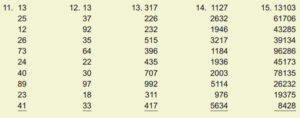High income debtors who wish to file a Chapter 7 bankruptcy case to discharge unsecured debts face a serious hurdle in the bankruptcy code’s means test, which gauges their income level, and compares it with a laundry list of average monthly expenses to see is the filer qualifies or not.
Married debtors are allowed an extra deduction on the means test for a non-filing spouse’s monthly expenses that are exclusive to him or her. This so-called marital adjustment was the focus of a recent Massachusetts case that probes the bounds of exactly what qualifies for as a legitimate marital expense for means test purposes.
In the Tapply case, the debtor claimed three monthly bills paid by his wife as a marital adjustment, which were challenged by the United States Trustee’s office. These were college tuition payments for the couple’s son, dance lessons for their daughter, and credit card payments for cards that were issued in the wife’s name only.
The debtor’s argument was that these expenses were all paid for exclusively by the wife from accounts over which he had no control, and that because they were likely to continue into the future, they should be deductible as future monthly bills. The trustee argued that college tuition and dance lessons were just a form of household expenses and were already accounted for (on a different line) in the means test calculation. He went on to claim that the debtor did not submit enough evidence to show how the wife’s credit card payments were for items that did not constitute household expenses.
Massachusetts bankruptcy judge Elizabeth Katz sided with the trustee, disallowing each of the claimed expenses and dismissing the debtor’s bankruptcy case.
College tuition and private school payments have been a hot potato in bankruptcy court lately, vulnerable to the argument that since they benefit the student rather than the debtor, they deprive other creditors of payments that are rightfully theirs. Here, Judge Katz found that the college tuition payments essentially belonged to both spouses even though they were paid exclusively by the wife, and therefore did fall into the category of household expenses. The same reasoning was applied to the daughter’s dance lessons, and both deductions were disallowed.
The issue concerning the wife’s credit card payments ended up being a matter of proof, rather than an absolute no-no. The debtor needed to show that the items bought on the wife’s card were purely personal to her, otherwise they would be assumed to be ordinary household expenses already accounted for. The judge ruled that the debtor did not provide enough information oil court to prove this, and so that deduction was disallowed too.
The message this case gives to future debtors can be summarized as ‘come into court well-prepared.” Printed statements and payment histories for credit card payments should be close at hand to show both trustee and judge that your deductions are legitimate.
